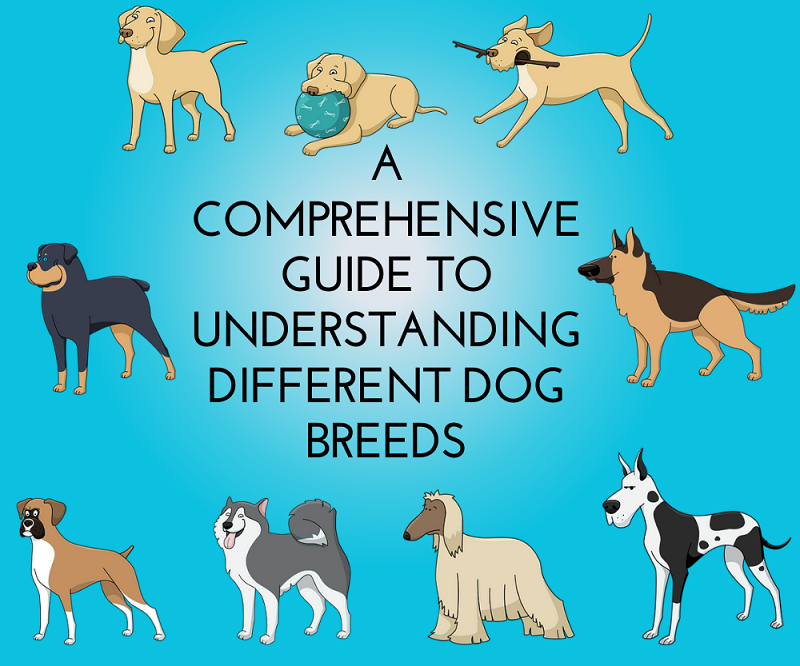Understanding Dog Breeds: Types, Traits, and How to Choose the Right One
Dogs have long been celebrated as man’s best friend, offering companionship, loyalty, and unconditional love. With over 340 recognized breeds globally by the Fédération Cynologique Internationale (FCI), each breed has unique traits, purposes, and personalities. Whether you’re a first-time pet owner or an experienced dog lover, understanding dog breeds is crucial for building a strong bond and ensuring your pet thrives. In this article, we explore the major dog breed categories, their characteristics, and tips on choosing the right one for your lifestyle.
Major Categories of Dog Breeds
Dog breeds are commonly divided into several categories based on their historical roles and behavioral traits. The American Kennel Club (AKC) classifies them into seven main groups:
1. Sporting Dogs
Sporting dogs were bred for hunting and retrieving game. They are energetic, intelligent, and require regular physical activity.
Popular breeds:
- Labrador Retriever: Friendly, trainable, and excellent with families.
- Golden Retriever: Loyal, affectionate, and ideal for therapy work.
- Cocker Spaniel: Gentle, compact, and known for their beautiful coats.
Ideal for: Active individuals or families who enjoy outdoor activities.
2. Hound Dogs
These dogs were bred to hunt using their acute sense of smell or exceptional speed.
Popular breeds:
- Beagle: Cheerful and curious, with a strong nose.
- Dachshund: Fearless hunters in a small, elongated body.
- Greyhound: Known for their speed, yet surprisingly gentle and calm.
Ideal for: Owners with fenced yards or those who enjoy structured walks and tracking games.
3. Working Dogs
Working breeds are strong, intelligent, and were developed to perform tasks like guarding, pulling sleds, or rescuing.
Popular breeds:
- Rottweiler: Confident and protective with strong guarding instincts.
- Siberian Husky: Energetic, independent, and thrives in cold climates.
- Doberman Pinscher: Alert, loyal, and excellent protectors.
Ideal for: Experienced dog owners with time for training and mental stimulation.
4. Herding Dogs
These dogs have a strong instinct to control the movement of other animals and are highly trainable.
Popular breeds:
- Border Collie: Extremely intelligent and needs mental and physical engagement.
- Australian Shepherd: Agile, work-driven, and great with kids.
- German Shepherd: Versatile and often used in police and service work.
Ideal for: Owners who enjoy dog sports or have ample space to run and play.
5. Terrier Dogs
Terriers are feisty, bold, and bred to hunt vermin. They are full of personality and need firm yet loving training.
Popular breeds:
- Jack Russell Terrier: Energetic and clever, with a love for digging.
- Scottish Terrier: Loyal and dignified, with an independent streak.
- Bull Terrier: Strong, playful, and loyal companions.
Ideal for: Active owners who can handle high-energy, confident dogs.
6. Toy Dogs
These small-sized dogs are bred primarily for companionship. They are affectionate and well-suited for apartment living.
Popular breeds:
- Chihuahua: Lively and courageous, despite their tiny size.
- Pomeranian: Fluffy, alert, and full of energy.
- Shih Tzu: Calm, loving, and ideal lap dogs.
Ideal for: City dwellers, seniors, or anyone looking for a cuddle companion.
7. Non-Sporting Dogs
This diverse group includes breeds that don’t fit into other categories but are beloved for their unique traits and appearances.
Popular breeds:
- Dalmatian: Known for their spotted coat and energetic personality.
- Bulldog: Laid-back and affectionate, ideal for low-key households.
- Poodle: Intelligent and hypoallergenic, comes in three sizes (standard, miniature, toy).
Ideal for: Families or individuals who appreciate distinctive personalities and appearances.
Mixed Breeds and Designer Dogs
Mixed breed dogs, often adopted from shelters, can combine the best traits of multiple breeds. Designer breeds like the Labradoodle (Labrador + Poodle) or Puggle (Pug + Beagle) are increasingly popular for their unique looks and hybrid vigor.
Benefits of mixed breeds:
- Generally more robust health (fewer hereditary issues).
- Unique personalities and appearances.
- Adoption saves lives and reduces pet overpopulation.
Choosing the Right Breed for You
Before bringing a dog home, consider the following:
1. Lifestyle Compatibility
- Activity Level: Can you meet the dog’s exercise needs?
- Living Space: Is your home suitable for large or high-energy dogs?
- Allergies: Consider hypoallergenic breeds like the Poodle.
2. Experience Level
- First-time Owners: Opt for breeds known for easy training (e.g., Golden Retriever, Cavalier King Charles Spaniel).
- Experienced Owners: May handle independent or challenging breeds better (e.g., Akita, Belgian Malinois).
3. Time Commitment
- Dogs like Huskies or Border Collies need substantial attention.
- Lower-maintenance breeds like Bulldogs or Basset Hounds may suit busier households.
4. Family Dynamics
- Children: Choose patient and friendly breeds.
- Other Pets: Some breeds are more sociable or tolerant.
Caring for Your Dog: General Tips
No matter the breed, all dogs require:
- Proper nutrition: Choose quality food tailored to size, age, and activity.
- Regular vet visits: Vaccinations, flea control, and health checks are vital.
- Grooming: Some breeds need daily brushing; others only occasional baths.
- Mental stimulation: Use toys, puzzles, and training exercises.
- Training and socialization: Essential from puppyhood to prevent behavioral issues.
Final Thoughts
Dog breeds are as diverse as the people who love them. From energetic sporting dogs to loyal working breeds, the ideal dog for you depends on your lifestyle, experience, and preferences. Research thoroughly, consider adoption, and remember that regardless of breed, a dog’s love and loyalty are unmatched. Choosing the right dog breed isn’t just about looks or trends—it’s about building a bond that lasts a lifetime.




